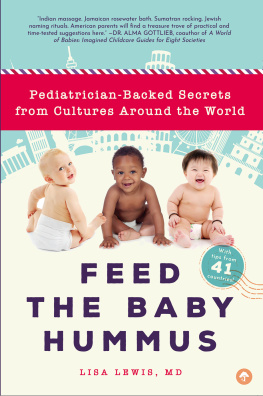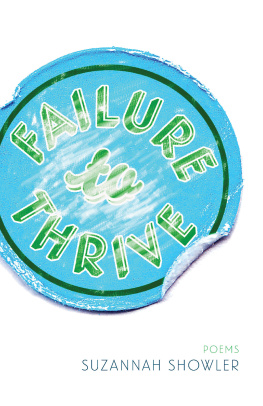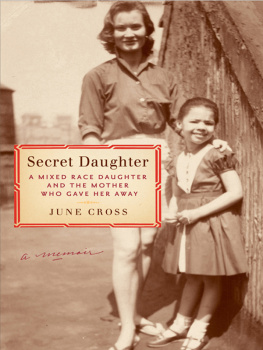Debi Lewis holds a BA and an MA in English and creative writing from the University of Wisconsin, where she was a recipient of the Eudora Welty prize for fiction. Her short fiction and essays have appeared in more than a dozen publications including the New York Times, Huffington Post, Bon Apptit, Eureka Literary Magazine, Hippocampus, Kveller, Scary-Mommy, The Manifest Station, Brain Child Magazine, and more. She has told stories in live storytelling events including Chicagos This Much Is True, StoryLab, and The Moth.
In 2005, Debis second daughters birth began what would become nearly a decade-long journey through the confusion and inefficiencies of modern pediatric specialty medicine, each step of which involved challenges with feeding. As she learned to cook for a variety of specialized diets, she came to love preparing food in a way that surprised and delighted her.
Debi Lewis lives in Evanston, Illinois, with her husband and two teenaged daughters. She runs a website design business and enjoys cooking, reading, and playing old-time fiddle. You can learn more about her at www.debilewis.com and follow her on Twitter at @growthesunshine.
W hen my second daughter, Sammi, was born, I could barely cook. Seven years before, when my husband David and I had first moved in together after our wedding, Id called my mother on the phone, horrified by the prospect of making dinner every night.
How do you do this? Id groaned, staring at the one cookbook someone had given me as a wedding gift.
Well, what did you eat before you got married? she asked me.
I was embarrassed to tell her about my single-woman eating habits: some nights, I stopped at the White Hen Pantry and bought a pound-sized tub of tapioca pudding, which I ate in noisy slurps in front of the TV. If I felt guilty about not eating vegetables for several days, Id make couscous and then dump in a can of mixed vegetables along with some butter and a big handful of powdered parmesan cheese. Most nights, though, I just melted cheddar cheese on some tortilla chips and called it a night.
Of course, David actually didnt care if I cooked dinner every night, but I felt like this was the next logical step on my path to becoming an adult. My mother had always made dinner and so had his; I absorbed the matriarchal duty on my own. Someday, I reasoned, there would be children to feed, and Id witnessed David trying to bake a potato in the oven during the course of many hours with minimal success. Partially due to gender norms and partially due to feelingat least marginallythe most qualified of the two of us, I subscribed to Vegetarian Times magazine and started clipping recipes into a small black plastic binder. It was slow going, but eventually I could make a few simple meals whenever we didnt lazily wander down to the Le Sabre Diner for greasy egg-and-cheese sandwiches on English muffins for $2.50 a piece.
When our first daughter, Ronni, was born, though, I got more serious. My mom taught me to make my own baby food with an immersion blender, and when I was whizzing up broccoli or pears or green beans for her, I saved some of the non-whizzed vegetables for us, finding new ways to use them. Ronni was a voracious eater, excited about everything, earning herself the nickname owl baby because of the way she craned her head nearly 180 degrees while sitting in the little high chair that clipped to our kitchen table, excited to catch a glimpse of dinner as soon as she possibly could.
In general, food delighted her. Her day-care provider told us she could polish off a can of beans almost by herself at ten months. Things began appearing on my grocery list that wed never bought before: beans, of course, but also the ingredients for thick, creamy egg salad; fresh corn on the cob; tubs of strawberries; graham crackers. By then, the raging lactose intolerance Id developed after my first year of marriage (goodbye, tubs of tapioca pudding and egg-and-cheese sandwiches) finally was met with the arrival of passableif not amazingdairy-free cheese substitutes, which I sprinkled liberally on almost everything.
By the time Ronni was a year and a half old, Id started serving her all the simple meals Id learned to make: pasta with sauted mushrooms, steamed broccoli, and sun-dried tomatoes; stir-fried vegetables and seitan (a faux meat Id tried at a Chinese restaurant and hunted down at a fancy health food store); frozen macaroni and cheese with peas mixed in; tortillas with refried beans and sauted peppers. She loved to eat. Davids mother, Susan, gathered the rest of the family around to watch when we approached her with a spoon; Ronni so loved food that she opened her mouth comically wide, her little feet kicking happily under her seat.
She ate absolutely everything we offered her. One day at a restaurant, Id pulled the onions off my sandwich and laid them on the side of my plate. When my back was turned, she reached over, grabbed a glistening strip of onion, and stuffed it in her mouth. We howled with laughter as we watched her react to it, and then laughed even harder when she reached for another. She was the same way with everything, clutching rice cakes to her chest, gobbling up big chunks of fresh pears, gleefully learning to spoon yogurt into her mouth. She grew strong and healthy, red cheeked and curious and tremendously fun to feed.
So, two years later, when her little sister Sammi was born, I hadnt given any thought to our eventual introduction of solid foods. I was worried about the sleep deprivation of her first months and the way she might affect Ronnis life. I was worried about doubling the cost of day care. I was worried about how I could possibly love her as much as I loved Ronni. But when Sammi arrived by emergency C-section after a traumatic day of medical interventions, how I would feed her was the last thing on my mind.
To our surprise, she was less than five pounds despite being a week past her due date. When a nurse finally handed her to me in the recovery room after surgery, I was worried that she might not be able to breastfeed. After all, Ronni and I had struggled with breastfeeding for the first month, and shed been nearly a pound bigger. When I put Sammi to my breast, though, the strength of her suckle made me gasp. From such a tiny mouth, I expected a feeble latch and a lot of frustration. Instead, she was fierce and attached. Shaped like a little doll, she was a perfect baby in miniature. She nursed contentedly until, seemingly in mid-swallow, she was pulled from my arms by a nurse who told me, almost as an aside as my skin cooled where Sammi had been laying, that Sammi had a blood sugar regulation issue that required time in the ICU. I cried as they took her away.
Despite Sammis immediate ease with nursing, there were hurdles to feeding in that first week. Her nurses argued that her blood sugar issue made her too tired to suckle. They said feeding her via her nasogastric tube (known colloquially as an NG tube) would be easier for her. When I finally convinced them to let me try breastfeeding herafter begging the nurses on the maternity ward to wheel me to the ICU two floors awaythe process was ghastly.
First, a nurse would weigh her. Next, I would breastfeed her, and the nurse would weigh her again. Once these numbers were recorded, the nurse would calmly remove the end of Sammis NG tube from where it was taped to the side of her face, insert a suction plunger into the end, suck all the milk through the tube out of Sammis stomach, measure it, and then force it back through the NG tube again. There was a radical contrast between peaceful moments of nursingthe rush of love I felt, Sammis fluttering eyelids and the way she melted into my armsand the invasive, almost violent suctioning of her stomach. I couldnt wait for her blood sugar to stabilize so I could get her home, away from this eat-suction-refeed cycle.











